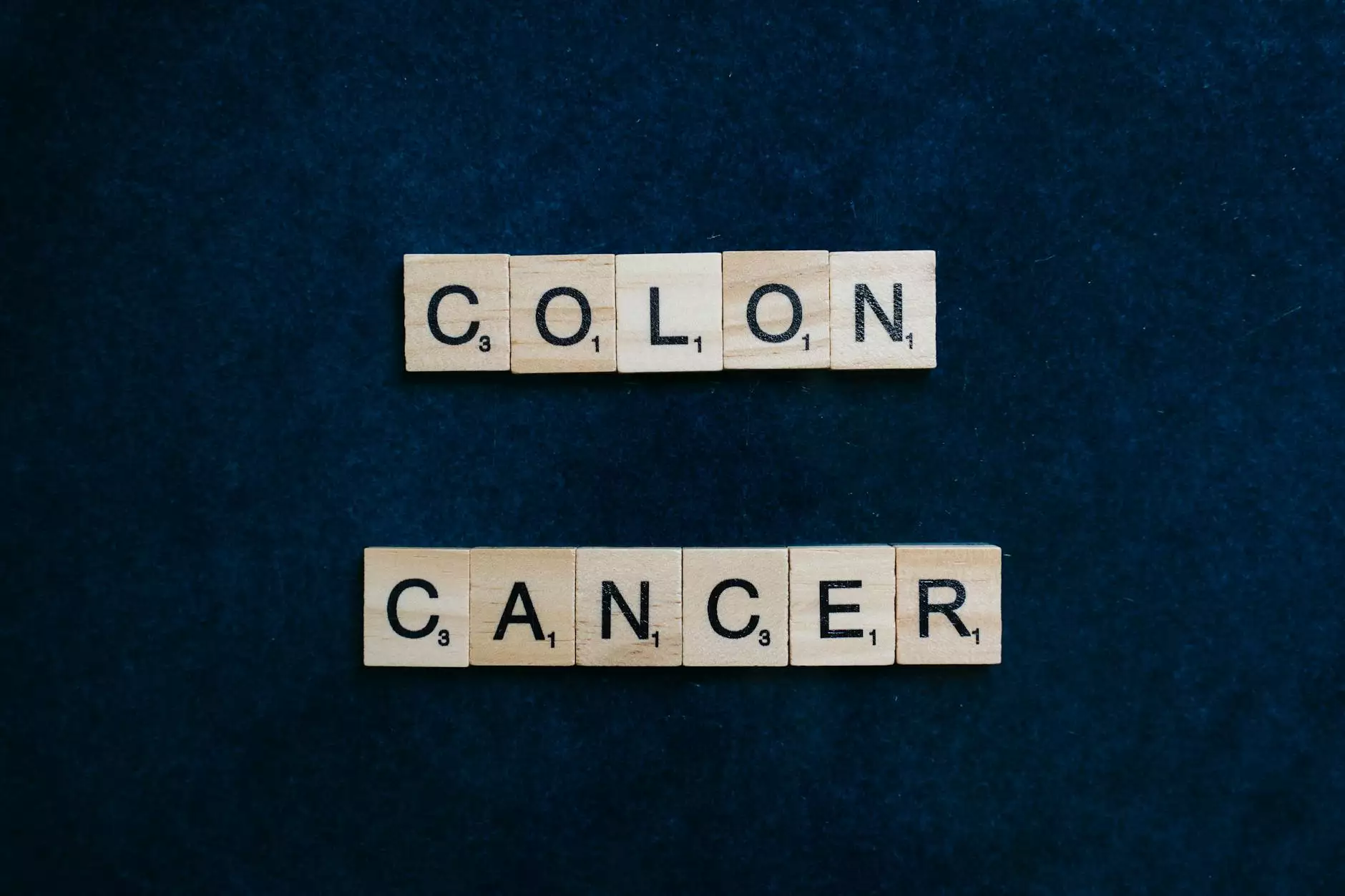Understanding the Role of Colon Cancer Specialists

Colon cancer, also known as colorectal cancer, is one of the leading causes of cancer-related deaths worldwide. However, advancements in medicine and increased awareness have significantly improved survival rates. A key factor in overcoming this disease is the expertise of specialized medical professionals, commonly referred to as colon cancer specialists. In this article, we will explore the importance of these specialists, the different types of experts available, and how they contribute to effective diagnosis and treatment of colon cancer.
What Are Colon Cancer Specialists?
Colon cancer specialists are medical professionals who focus primarily on the prevention, diagnosis, and treatment of colon cancer. Their expertise allows them to offer tailored care to patients, ensuring that every individual receives the most effective treatments based on their unique circumstances.
Types of Colon Cancer Specialists
- Gastroenterologists: These doctors specialize in the digestive system, and they often perform colonoscopies to detect abnormalities.
- Oncologists: Medical oncologists focus on treating cancer with chemotherapy, while radiation oncologists specialize in using radiation therapy to fight cancer.
- Colorectal Surgeons: Also known as surgical oncologists, these specialists operate to remove cancerous tumors from the colon and surrounding tissues.
- Pathologists: After biopsies, pathologists analyze tissue samples to confirm the presence of cancer and determine its type and stage.
Why Is Early Detection Important?
Early detection of colon cancer significantly increases the chances of successful treatment. Regular screenings, such as colonoscopies, can detect precancerous polyps and early-stage cancers when they are most treatable. Here are several key points highlighting the importance of early detection:
- Improved Prognosis: Early-stage colon cancer often requires less aggressive treatment and has a higher survival rate.
- Less Extensive Treatment: Catching cancer early may allow for less invasive surgical options.
- Cost-Effective: Treating cancer at an earlier stage generally incurs fewer medical costs.
How Colon Cancer Specialists Diagnose the Disease
Diagnosis by colon cancer specialists typically involves several steps, including medical history assessment, physical examinations, and various diagnostic tests. The most common diagnostic procedures include:
1. Colonoscopy
During a colonoscopy, a gastroenterologist uses a flexible tube with a camera to examine the inner lining of the colon. This procedure allows the specialist to identify any abnormal growths or polyps.
2. Biopsy
If abnormalities are found during a colonoscopy, a biopsy may be performed to collect tissue samples for laboratory analysis. This step is crucial for confirming the presence of cancer.
3. Imaging Tests
Additional imaging tests, such as CT scans, MRIs, and PET scans, may be conducted to determine the extent of the cancer and whether it has spread to other organs.
Treatment Options Offered by Colon Cancer Specialists
Once a diagnosis is confirmed, colon cancer specialists work collaboratively to develop a personalized treatment plan for the patient. Treatment options often include:
1. Surgery
Surgery is typically the first-line treatment for localized colon cancer. Surgical options may include:
- Colectomy: The removal of the affected portion of the colon.
- Colon Resection: Removing a part of the colon containing the tumor along with surrounding tissues.
- Colostomy: In some cases, a colostomy may be needed to create an opening (stoma) from the bowel to the outside of the body.
2. Chemotherapy
For more advanced stages of colon cancer, chemotherapy may be recommended. This treatment uses drugs to destroy cancer cells and can be given before surgery (neoadjuvant) or after surgery (adjuvant).
3. Radiation Therapy
Radiation therapy may be used in conjunction with surgery or chemotherapy, particularly for rectal cancer, to shrink tumors before surgery or to eliminate remaining cancer cells post-surgery.
4. Targeted Therapy and Immunotherapy
Recent advancements in cancer treatment have led to the development of targeted therapies and immunotherapies that specifically attack cancer cells without harming normal cells. These personalized treatments are often guided by genetic testing of the tumor.
Choosing the Right Colon Cancer Specialist
Choosing the right colon cancer specialist is a critical decision in the journey against colon cancer. Here are several factors to consider:
- Credentials and Experience: Look for specialists who are board-certified and have extensive experience in treating colon cancer.
- Treatment Approach: Research their approaches to treatment to ensure they align with your preferences, whether surgical, medical, or holistic.
- Hospital Affiliations: Consider specialists who are affiliated with reputable hospitals known for cancer treatment.
- Patient Reviews: Check online reviews and testimonials from former patients to gauge satisfaction and outcomes.
Support Services for Patients
Undergoing colon cancer treatment can be emotionally and physically taxing. Many colon cancer specialists offer access to support services, including:
- Nutrition Counseling: Registered dietitians can help create nutritional plans tailored to cancer treatment.
- Psycho-Oncology Services: Mental health professionals can provide counseling and support to help with the psychological impacts of cancer.
- Support Groups: Connecting with others undergoing similar experiences can foster a sense of community and shared understanding.
Advancements in Colon Cancer Research
The field of colon cancer research is continually evolving, with ongoing studies aimed at improving prevention strategies, diagnostics, and treatment options. Some notable advancements include:
- Genetic Profiling: Understanding genetic predispositions to tailor prevention and treatment strategies.
- Artificial Intelligence: Utilizing AI for more accurate diagnosis and personalized treatment planning.
- Less Invasive Techniques: Innovations in minimally invasive surgery techniques that facilitate faster recovery.
Conclusion
The importance of colon cancer specialists in the fight against colon cancer cannot be overstated. Their expertise, combined with advancements in medical technology, contributes significantly to early detection and effective treatment strategies. Understanding the roles of different specialists, the importance of early diagnosis, and available treatment options empowers patients to make informed decisions about their healthcare journey.
As you navigate the complexities of colon cancer, remember that support is available every step of the way. Seek out professional guidance and engage with specialists who prioritize your health and well-being, paving the way for effective treatment and hopeful recovery.









